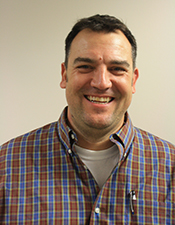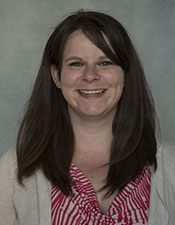
 ROCK HILL, SOUTH CAROLINA – Winthrop University’s Department of Social Work will partner with six agencies to pilot a three-year project to help defendants with
drug addictions in jail at the Moss Justice Center.
ROCK HILL, SOUTH CAROLINA – Winthrop University’s Department of Social Work will partner with six agencies to pilot a three-year project to help defendants with
drug addictions in jail at the Moss Justice Center.
The $900,000 federal grant helped create the South Carolina Medication-Assisted Treatment Court, which seeks to combat the opioid epidemic in York County and to reduce the number of repeat drug offenders, said Winthrop social work faculty members Duane Neff and Jessica Yang. Their team helped devise a medication-assisted treatment program for 30 defendants that hopefully can be modeled in other S.C. counties.
Neff said the treatment program will help those charged with drug offenses who normally may have to wait in jail up to six months before they appear before a judge on their charges. “This recovery program will help those between their arrest and disposition of their case,” said Yang, an assistant professor in social work, by offering behavior and medication-assisted treatment, peer support services, transportation and housing.
Winthrop’s social work team will monitor the program through the hiring of a project coordinator, who will be a student from the Master of Social Work program. The coordinator, along with two other student workers, are expected to work 10-20 hours a week the first year in collecting data for federal reporting.
The project officially launched Feb. 1.
“Winthrop is proud that our social work faculty and students are able to provide their expertise and compassion to a growing population that needs a chance to improve their lives,” said Winthrop University President Dan Mahony. “We hope this pilot program will provide meaningful change for some of York County’s citizens, and we appreciate that our social work students will get to contribute to such an important endeavor.”
The project is the brainchild of Joseph Y. Shenkar, General Counsel with the S.C. Department of Alcohol and Other Drug Abuse Services, who will serve as project director. The program will provide “meaningful treatment” through combined behavioral and medication-assisted treatment. “Medication does not work alone because it doesn’t address the social and mental issues of the defendant,” Shenkar said.
York County is an ideal place to test this initiative, he said, because of the rapid increase in drug usage. The county has experienced a 75 percent increase from 2014 to 2016 in opioid-related deaths, from 24 to 42 deaths, according to the grant application. Many of the deaths resulted from prescription medicines, and a growing number due to fentanyl, a pain medication that is often made illegally and mixed with heroin or cocaine for recreational use.
York County EMS and law enforcement officials report that they administered Naloxone, which is a medication designed to rapidly reverse opioid overdose, to 168 individuals in 2016 and to 251 in 2017. Local hospitals and Keystone Substance Abuse Services also report increasing numbers of drug-related overdoses and clients with an opioid diagnosis.
Training will be provided to personnel at the York County detention center to screen for appropriate defendants and a designated prosecutor from the solicitor’s office will help with coordination.
York County Sheriff Kevin Tolson said he is eager to participate in any program that can successfully address the opioid epidemic. “This battle cannot be fought by enforcement measures alone, and this grant-funded program allows for an innovative, multi-faceted approach that will hopefully begin to address this ever-growing problem,” he said.
The grant allows for housing scholarships for the clients to stay at one of the three Oxford Houses located in York County. The non-profit organization has opened 60 houses in South Carolina as places drug offenders can live in a democratically run, self-supporting and drug-free home.
Lisa Londono, an outreach worker with Oxford House of South Carolina, said one of the criteria for defendants to navigate successfully through drug court is having safe and secure housing.
Other participating agencies in the project are: York County Solicitor’s Office, York County Sheriff’s Office, Keystone Substance Abuse Services of York County, and Rock Hill Treatment Specialties, as well as Faces and Voices of Recovery (FAVOR) whose members will peer support services.
Funding for the $900,000 grant is provided by the U.S. Department of Justice, Office of Justice Programs and Bureau of Justice Assistance through the S.C. Department of Alcohol and Other Drug Abuse Services.
For more information, contact Winthrop faculty members Duane Neff at neffd@winthrop.edu or Jessica Yang at yangje@winthrop.edu.